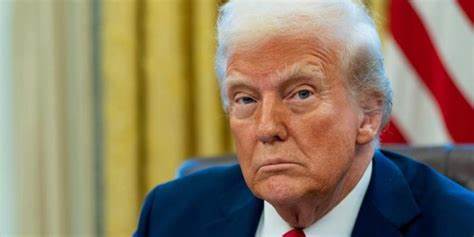Nigeria’s rejection of United States demands to accept deported asylum seekers has emerged as the primary catalyst behind recent visa restrictions imposed on Nigerian citizens, according to diplomatic sources who spoke with The Cable in an exclusive investigation.
The revelations expose the complex diplomatic negotiations that preceded the Trump administration’s decision to limit visa validity for Nigerians to single three-month entries, marking a significant departure from previous arrangements between the two nations.
Recent visa restrictions announced by the U.S. Embassy in Nigeria on Tuesday now appear to be part of broader sanctions following Nigeria’s refusal to comply with Trump’s revived hardline immigration policies. These policies include pressuring countries to host asylum seekers deported from the United States while their cases, which often span up to seven years, undergo processing.
Unlike Rwanda, El Salvador, South Sudan, and Panama, which have accepted such arrangements, Nigeria has maintained a firm stance against hosting non-citizens with pending asylum applications. The situation is further complicated by reports that many of the potential deportees are convicted criminals, adding another layer of complexity to Nigeria’s position.
“Discussions were held, but Nigeria was unwilling to accept non-citizens, many of whom had years left on their asylum applications,” one diplomatic source disclosed, highlighting the fundamental disagreement between both nations.
The investigation also reveals that Washington has demanded access to Nigeria’s criminal database, ostensibly to identify Nigerians in the United States with past convictions for potential deportation. Additionally, the US requested that Nigeria allow online applications for American citizens seeking five-year visas, bypassing in-person embassy visits – a request Nigeria declined citing non-reciprocity.
The U.S. Embassy’s announcement on Tuesday introduced sweeping changes to visa issuance, cutting the duration and frequency of non-immigrant and non-diplomatic visas to Nigerians. The embassy cited Nigeria’s failure to meet certain reciprocity standards as justification for the measures.
Contrary to social media claims, Nigeria has never stopped issuing five-year visas to U.S. citizens. Physical visas still offer validity ranging from three months to five years, depending on category and entry type. Nigeria’s e-visa system, introduced in March, provides a 90-day single-entry visa available to all non-ECOWAS nationals, including Americans. However, the United States does not extend a similar electronic visa option to Nigerians, creating what observers describe as uneven reciprocity.
The diplomatic tensions reflect President Trump’s negotiation style, as outlined in his book “The Art of the Deal.” A diplomatic source explained that “He applies maximum pressure, often starting with punitive actions, and offers concessions only after getting what he wants.”
Nigeria’s deepening alignment with BRICS, an economic bloc Trump views with skepticism, has also contributed to strained U.S.-Nigeria diplomatic relations. In a symbolic gesture, Nigeria was notably excluded from Trump’s meeting with African leaders at the White House on Wednesday, where economic partnerships were discussed.
The Nigerian government has responded to the visa restrictions by describing them as inconsistent with values of reciprocity, equity, and mutual respect that should guide relationships between friendly nations. “We urge the United States to reconsider its decision in the spirit of partnership, cooperation, and shared global responsibilities,” Nigeria stated in its official response.
The restrictions represent a significant escalation in diplomatic pressure, with the visa limitations directly impacting thousands of Nigerians who regularly travel to the United States for business, education, and family visits. The single three-month entry limitation marks a dramatic reduction from previous multi-year, multiple-entry visas that facilitated easier travel between the two nations.
The revelations shed light on the complex diplomatic maneuvering behind what many initially viewed as routine visa policy adjustments, revealing instead a calculated pressure campaign by the Trump administration to secure Nigerian compliance with its immigration agenda.



















